A-Z Index
We're sorry, but the page you are looking for cannot be found.
Try searching or using the site listing below.
A
- A Cool Roof
- About SUNY Erie
- Academic Advising
- Academic Calendar
- Academics
- Accounting Technician
- Admissions & Aid
- Alumni
- American Rescue Plan Special Circumstance Guidance
- Architecture Technology
- Are you ready?
- Assignment of Public Contracts
- Automotive Service Technician
- Automotive Service Technician
- Automotive Technology
- Automotive Trades: Autobody Repair
B
- Baking And Pastry Arts
- Biotechnological Science
- Biotechnological Science
- Board of Trustees
- Board of Trustees Approves 2021-2022 Budget
- Bookstore
- Breathe Easy
- Brewing Science And Service
- Bring Your Own Device
- Building Management And Maintenance
- Building Trades/Residential Light Commercial
- Business Administration
- Business Administration
- Business Administration: Office Management
C
- CNC Precision Machining
- Career Fair Employer List
- Career Services
- Career Services Resources
- Casino Gaming Machine Repair Technician
- Catering And Event Planning
- Celebrate Earth Day
- Certificate of Residence Information
- Child Care
- Civil Engineering Technology
- Clinical Laboratory Technician
- College Prep & High School Programs
- College Safety
- Communication And Media Arts
- Community Public Health Worker
- Computer Aided Drafting/Design Technology
- Computer And Electronics Technology
- Computer Science
- Construction / Reconstruction Contracts
- Construction Management Engineering Technology
- Construction Management Technology
- Consumer & Legal Information
- Continuing Education
- Coronavirus Information
- Corporate Training
- Corrections Officer
- County Residency Links
- Course Placement Chart
- Crime Scene Technology
- Criminal Justice
- Criminal Justice/Law Enforcement
- Culinary Arts
- Culinary Nutrition in Health Care
- Culinary and Hospitality
D
E
- EMT (Emergency Medical Technology) Basic Course (Eg113)
- Early Childhood
- Early Childhood Studies
- Electrical Engineering Technology
- Emergency Management
- Emergency Medical Services Provider
- Emergency Medical Technology/Paramedic
- Emergency Medical Technology/Paramedic
- Energy Reduction
- Engineering Science
- English
- Entrepreneurship
- Environmental Science
- Equity, Diversity & Inclusion
- Equity, Diversity and Inclusion: Policies & Resources
- Erie Connects: Emotional Health Support
- Excels: Access
- Excels: Completion
- Excels: Engagement
- Excels: Operations
- Excels: Success
F
- Fall 2020 Continuing Education Course Schedule
- Financial Aid
- Find Your Program
- Find Your Program
- Fine Arts
- Flex Dollar Meal Plan
- Flex Dollar Payment
- Food Preparation And Safety
- Food Service Administration-Dietetic Technology-Nutrition Care
- Foundation
- Fuel-Efficient Vehicles
G
- General Information - Contractual Conditions
- Get Info
- Giving Tuesday
- Graduate
- Graphic Communications Technology
- Green Building Technology
H
- HEERF II
- HEERF III (American Rescue Plan)
- Health And Wellness Promotion
- Health Information Technology
- Health Services
- Heating, Ventilation, Air Conditioning And Refrigeration
- Help us Name the Triplets!
- Historical Timeline
- History & Tradition
- Homeland Security
- Hotel Restaurant Management
- How to Apply
- Human Services
- Human Services
- Humanities
I
- Inclusive Support
- Indoor Water Use
- Industrial Technology
- Information Technology
- Institutional CARES Act Funding
- International Students
J
L
- Leadership in Energy and Environmental Design
- Let’s Shed Some Light – Mercury Lamps
- Liberal Arts And Science - Childhood Education Grades 1-6
- Liberal Arts And Science - General Studies
- Library
- Linde Skills Pipeline Program
M
- MWBE Commitment
- Mathematics
- Mechanical Engineering Technology
- Mechatronics
- Medical Assisting
- Medical Office Practice
- Mental Health Assistant - Substance Abuse Counseling
N
O
- Occupational Therapy Assistant
- One Stop Career Center
- Online Learning
- Opportunity Programs
- Outdoor Water Use
P
- Paralegal
- Parking & Transportation
- Physical Education Studies
- Placement Testing
- Police Basic Training
- Police Science
R
- Radiation Therapy Technology
- Reduce, Reuse, Recycle
- Register for Classes
- Registration Open for Next Pre-Collegiate Studies Session
- Residency Policy
- Respiratory Care
S
- SUNY Erie
- SUNY Erie 75th Anniversary
- SUNY Erie Announces Presidential Finalists
- SUNY Erie Center for STEM Studies
- SUNY Erie Community College Appoints New Board Chair, Officers
- SUNY Erie Excels
- SUNY Erie Faculty & Staff Diversity Dashboard
- SUNY Erie Launching Program in Cannabis Studies
- SUNY Erie Nursing Students Achieve Perfect Pass Rate On Licensure Exam, Programs Rank Among The Top In NYS
- SUNY Erie Student Diversity Dashboard
- SUNY Erie, County Officials Dedicate Building To Stem Workers
- Scholarships
- Search Results
- Shuttle Schedule
- Sitemap
- Social Science
- Special Applicants
- Special Programs
- Sports And Leisure Studies
- Student CARES Act Info
- Student Life
- Student Life
- Student Resources
- Student Support
- Summer Success Academy Accepting Applications
- Support our Students
- Survey of Graduates
T
V
W
